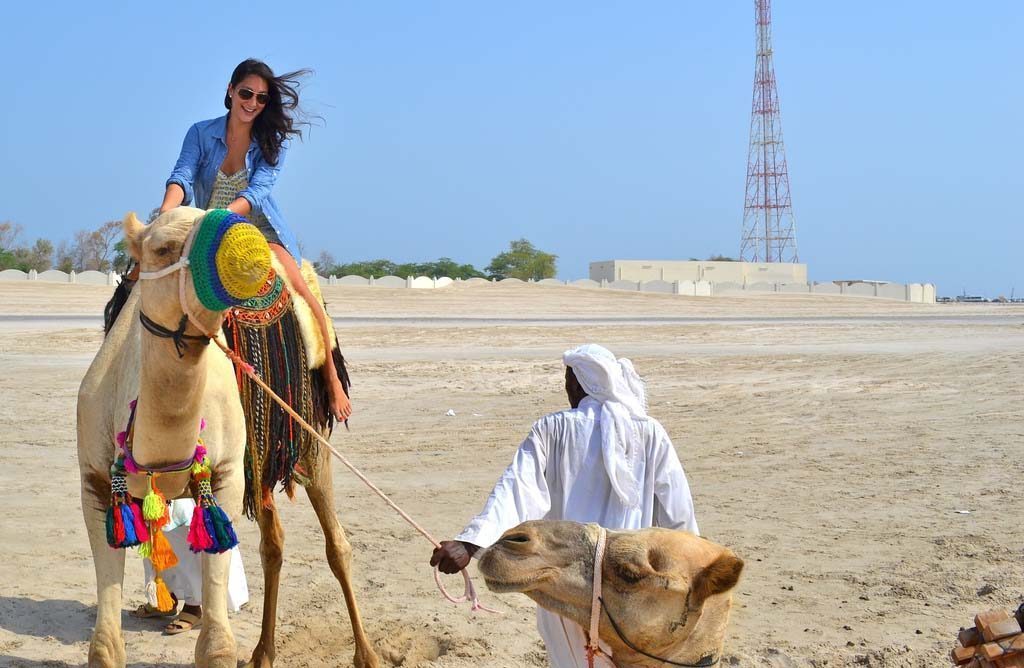
Thousands of football fans will be able to choose to sleep in desert camps during the 2022 World Cup in Qatar, a tourism industry consultant has said.
Such camps would be a creative way for Qatar officials to meet FIFA’s requirements when it comes to having enough rooms available for spectators and football officials during the tournament.
As of the end of 2015, the Qatar Tourism Authority said there were approximately 20,700 rooms in hotels and serviced apartments operating across the country.
FIFA requires triple that, or 60,000 rooms.

But it looks likely that Qatar will only be home to 46,000 such rooms by 2022, based on what’s planned and currently under construction, said David Goodger, a UK-based director in Oxford Economics’ tourism division.
Speaking at a conference this week, he said the market would likely not be able to support any more than that immediately before and after the tournament.
To make up for the shortfall, local officials have been brainstorming alternative options.
One solution that’s already been floated is using cruise ships to lodge some 6,000 visitors during the tournament.

Speaking at the MEED Qatar Projects conference on Tuesday, Goodger said Qatar is also looking at accommodating large volumes of visitors in desert camps during the tournament, which is being held in November and December.
“It’s great weather for camping and it’s an option that I could see working really well,” he told Doha News on the sidelines of the conference.
Popular pastime
While it will take additional infrastructure to support desert camps, these would still be a more cost-effective option than constructing hotels that may sit empty after 2022, Goodger added.
He said the compact nature of Qatar’s World Cup would make desert camping feasible, and suggested fan zones in the camps could also be constructed to enhance the experience for spectators.

Desert camping is a common wintertime activity in Qatar. While some people simply pitch a tent in the sand, others prefer more luxurious options, spending time on sites with electricity and catered meals.
Camping is also a popular activity for tourists in the Middle East, with dozens of camps catering to visitors in the Wadi Rum area of Jordan, for example.
Football fans who are looking forward to attending the first World Cup in the Middle East would also likely enjoy staying in a desert camp, as such a feature plays to Qatar’s strengths.
In a paper published last year, British academics spoke to many people who plan to attend the 2022 tournament. They said they were excited about the opportunity to experience and explore Qatar’s culture, and one veteran World Cup attendee was quoted as saying:
“Qatar will be different, but that’s the beauty of the World Cup and another reason to go.”
Talk of using desert camps in 2022 comes as the QTA attempts to attract more tourists to Qatar by marketing the country’s natural features, such as its deserts, wildlife and bodies of water, among other attractions.

Officials are also trying to encourage the development of more tourist infrastructure outside of Doha.
Even if Qatar’s hotels, serviced apartments, desert camps and hired cruise ships can’t accommodate all the country’s World Cup visitors, there are other options.
Speaking during the conference on Tuesday, Filippo Sona – head of hotels in the Middle East and North Africa at real estate firm Colliers International – suggested an inexpensive option would be to officially allow residents to temporarily rent out their rooms through a service such as Airbnb.
“There are solutions for everything,” he said.
Thoughts?







